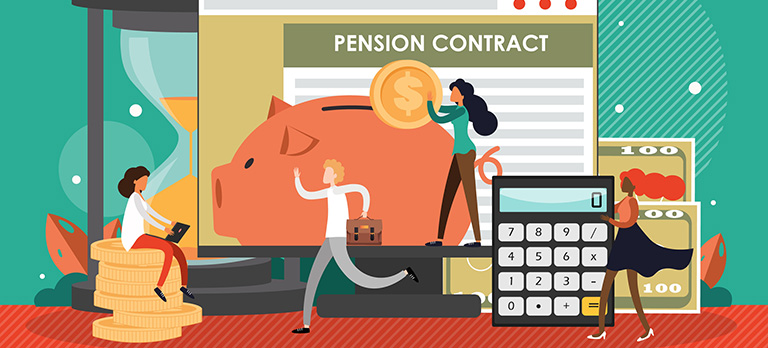
We’ll be working well into our 70s but hopefully something will shift soon.’ I stumbled across this comment on social media and it really resonated with me.
I started work at 16, so the thought of having no choice but to work into my 70s feels overwhelming. Working into your 70s can be rewarding for some, but surely it’s about choosing to, not having to. In other words, attaining the financial independence to be able to do what fulfils you.
So why might that person have made that comment? Is it not knowing where to start? Not knowing where or how much to save? Is it for lack of a plan?
Most of my clients feel they need to keep generating income to maintain their cost of living, but many don’t see that their current savings could help generate an income to live the retirement they want.
Reducing debt
Before we get into saving, the first step is to reduce debt, especially short-term, high-cost debt such as loans or credit cards. Generating a return less than the interest you are paying on your debt is counterintuitive. You don’t need a financial adviser to know that paying 5% interest on your car loan and only generating a return of 1% on your cash savings doesn’t make financial sense.
Having some cash in an easy-access savings account can help protect you against loss of income or unexpected costs. Think about how much you spend every month and how much of a cash buffer you might need to cover living while you look for new income streams.
Knowing where to start
Your 70s could feel far away and saving towards them could feel like a mountain to climb, but there's no need to panic. The best thing to do is understand where you are now and where you want to get to.
You might have already started. If you have been enrolled in a workplace pension scheme, you are likely to already be receiving annual updates on its value. However, you might find it more motivating to see the value more frequently. You could apply for online access or download your pension provider’s app. Understanding what you have, the fees, and potential returns could help you optimise your plan and highlight opportunities for tax relief.
You can also save into non-pension products. Start saving a monthly amount and slowly increase it until you have reached the maximum that you are comfortable with saving. You might be surprised how addictive it can become. Establish a direct debit from your bank account to your savings pot the day after payday. Whatever the amount, start today. The earlier you start, the more time your savings will have to benefit from compounding interest or investment returns.
Knowing how much to save
Working out how much to save can be quite a complex calculation. The first step is to estimate how much you think you might need in retirement and how long your savings will need to last. if you plan to retire at 65 with £3,000 per month, you will need a pot that can sustain withdrawals of £36,000 per year from age 65 until you pass away.
This could to be close to a pot of £1million, but with a state pension, previous company pension schemes and savings and investments, it could be substantially less.
Alongside workplace pensions, there are other savings and investment routes to consider. The popularity of Lifetime ISAs, for example, has spiked in recent years. Lifetime ISAs can only be accessed without charge towards the purchase of a first property or at age 60. Different products will provide for different needs so it’s important to look at how you can get your money out before paying into a product. That’s why making a plan is so important.
Making a plan
You might decide to project living to age 100 for prudence. The Office of National Statistics can help you understand the probability of you living to both an average age, plus into those centurion numbers.
Inflation will erode the purchasing power of your investment. That’s why people need to invest and generate a return that allows their assets to generate a real rate of return, maintaining the spending power of their wealth.
The best thing to do might be to seek professional financial advice from someone able to put a bespoke plan in place for you.
Three main takeaways
- Start today, it is never too late but the earlier the better
- You might not be as far away as you fear. You might have accumulated pension pots, state pension benefits, and other sources. When you add them all up, that is probably a larger head start than you anticipate
- Your savings journey is personal to you. We are currently in a cost-of-living crisis and you might not be able to save as much as you want but getting into the habit of doing something will allow you to reap the rewards. If your situation changes, increase the amount that you are saving. There is no right or wrong amount. Commit to saving as much as you can while covering your costs and allowing a few luxuries. Saving isn’t about not going on holiday or not seeing your friends, make the amounts manageable as you’ll be more likely to stick to it.